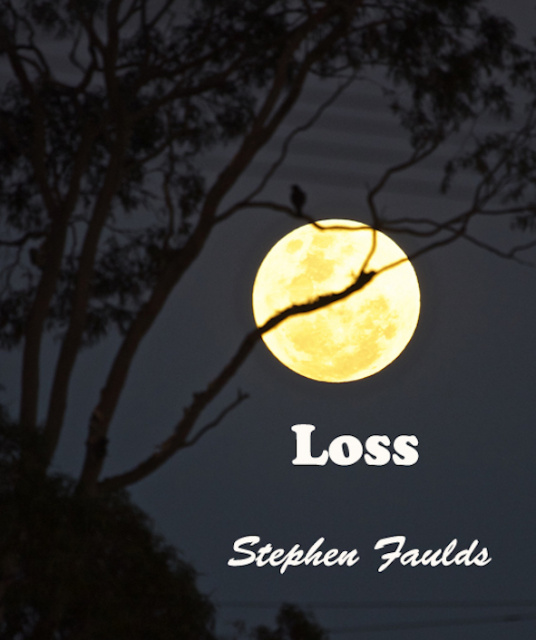
http://tinyurl.com/y92l3oaq
ISBN 9781370748433
Précis
Gedhan Seenarain has lost his wife and daughter in a murder suicide. Through grief and denial, pleasure and pain he explores fleeting and sometimes dysfunctional relationships in an attempt to determine if his life is worth living.
Written in a continuous mix of first and third person narrative, set in Australia and India, Loss explores the mind of a man whose life has been defined by the suicide of his wife. In his grief he is drawn to suicide as a remedy for his existential pain. He seeks solace in the Hindu beliefs of his parents. He travels to India to find his family roots and instead finds a relationship that bridges the gap between the two cultures of his upbringing. It is a relationship that offers further challenges to his identity.
Synopsis
Gedhan is living in a disconnected state of mind, grieving for his daughter killed at the age of nine by her mother in a murder suicide.
He explores the practical and philosophical implications of taking his own life.
He struggles to find meaning in his work as a legal consultant for big company contracts. When his Manager is charged with embezzlement he becomes acting Manager, a position he finds onerous. He has an unsatisfactory intermittent relationship with his secretary.
He responds to interest from a seventeen year old high school student living next door and eventually has a sexual relationship with her.
Gedhan’s sense of alienation increases when the girl's parents discover the liaison, further complicated when the girl's father commits suicide.
He travels to India to explore the cultural roots of his family. Attitudes toward death in India have a strong impact upon him.
He meets and has a relationship with an Indian woman. This is interrupted when her father becomes seriously ill with a terminal disease.
Gedhan returns to Australia to come to terms with some of his satisfactory relationships and his personal grief.
The story ends when he sells his house and returns to India.
SAMPLE
If I could understand death I might never need to die.
1
The thin, twisting spiral of grey smoke stings his eyes. I love the smell of burning leaves. Dew evaporates from the wet winter grass at the edges of the fire. He is burning the leaves of the almond tree and the husks left by marauding parrots. They hadn't left a single green kernel to ripen. He laments the insensitivity of nature, its indifference.
The smoke swirls over the almond tree, signaling his protest to an un-woken world. The ancient warbling of a magpie celebrates an event otherwise unnoticed at the fringes of suburban slumber.
Gedhan Seenarain has tears in his eyes. He pokes the tiny inferno and exposes the smoldering heart under a carpet of leaf debris. It flares at the unexpected oxygen and sears the smoke momentarily from the hot air.
The heat warms his chill bitten toes and his sandals. His cotton pyjama pants cling warmly to his legs. His shoulders jerk with an involuntary shiver as his body draws the radiant heat. How quickly the winter air surrenders to a fire.
But there is no fire to burn away the pain, submerged as it is in the deep, chilling torpor of his heart. I am warming the least of myself. If I were consumed on a pyre, I would still not feel warm.
At thirty-two Gedhan is on the brittle edge of middle age. Suddenly there is a gap between him and his youth. He has become the link between his life and his old age. The thrill of danger has been replaced by the prospect of mortality. Growth has been replaced by a need for healing. His strong limbs are now sinews of endurance. I live to survive rather than survive to live.
He drags the last of the litter to the dwindling heat and watches the half-hearted flare with regret. There is nothing left to burn. He walks back toward the house, reluctant to leave the pagan thrill of fire for the things that will begin his day.
The nutty aroma of coffee, anticipation of the first dry bite on the back of his tongue. He takes his mug to the window where he can see the last strands of smoke. The garden is so wet the dew might still be falling. Dew does not fall. It materialises. The moist air simply kisses the leaves and droplets appear unseen in the night, silver when the moon or the sun reaches them.
He slakes his little addiction. I no longer live by hope, or dreams. I live by the taste of reality. The satisfying bitterness of coffee is a perfect metaphor. A Wattle Bird chuckles in the almond tree. Kookaburras take up their hoot from the street trees where they wait every morning for the old lady who feeds them strips of dried meat on her back patio. She was late yesterday. She told him her bones are slow.
He takes his towel from the back of a dining room chair, where Michelle hated him leaving it. He hasn’t warmed the bathroom like he used to. Transitions between heat and cold are at least a reminder that he is alive. He appears in the wide mirror like a fugitive.